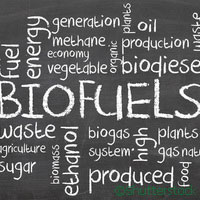| Jan 08, 2013 | |
Raising awareness of the bioeconomy |
|
| (Nanowerk News) The bioeconomy sector is an industry which is rapidly growing in importance on a global scale. As we continue to consume the Earth's resources, many of which are not renewable, alternatives to fossil fuels for energy and industrial raw materials are a primary focus. | |
| Attention is now being focused on alternatives such as biofuels (ethanol and diesel), which are made directly from agricultural crops. Many fossil fuels are also used as industrial feedstocks, to produce chemicals and plastics. Most of this use could, over time, be replaced by biomass - starch and straw, for example - fermented and converted to a vast range of materials using enzymes or microorganisms. Indeed this is an area in which Europe is leading in various fields of biosciences and technologies; but, international competitors are catching up. | |
 Continued development and application of biotechnology will effectively reduce our dependence on fossil fuels. Oil, gas and coal will be replaced by biomass, while chemical catalysts will increasingly give way to enzymes and microorganisms so our resources are completely sustainable. Already, the EU bioeconomy has a turnover of nearly EUR 2 trillion and employs more than 22 million people, accounting for 9 % of total employment in the EU. But in order to stay ahead, the European Commission has adopted a number of measures, including devising a strategy for 'Innovating for Sustainable Growth: a Bioeconomy for Europe', launched earlier in 2012. The overall aim is to move the European economy towards greater and more sustainable use of renewable resources, building on research, innovation and investment. Anticipation and upgrading of knowledge and skills, and better matching of skills and jobs are key to the success of the bioeconomy strategy in delivering growth and new employment opportunities in Europe. Investing in further research is also seen as a key area in European bioeconomy growth - particularly through entrepreneurship and innovation, and building new business, efficiently and competitively on new knowledge. It is also seen as important to establish links with universities and ensure that initiatives reach students in the fields of biosciences and agriculture, not just business and engineering. |
|
| A bioeconomy will require policy professionals at national and EU levels to be prepared with the knowledge and skills necessary to develop and adapt policies supporting the bioeconomy. To date, very few such opportunities exist. The expanding bioeconomy will also require communications skills to effectively communicate and discuss the nuanced complexities of modern bioeconomy with the public, as well as engage civil society in bioeconomy. Again, opportunities for this kind of training are rare. These are just a few examples of important workforce demands that are likely to emerge. | |
| Investment, research, innovation and skills are seen as key areas of focus to ensure growth and further integration of the bioeconomy sectors. Also needed is implementing multidisciplinary education programmes, encouraging mobility, organising the development of new bioeconomy curricula in universities, and providing new training opportunities for those in high- as well as low-skilled jobs. | |
| With this in mind, the conference 'New skills for a European Bioeconomy' was recently hosted by the European Commission's Directorate-General for Research and Innovation (DG RTD). The conference brought together bioeconomy and education and training stakeholders to discuss the role of skills development in driving and facilitating transition towards the bioeconomy and seizing the employment opportunities that this transition entails. The conference aimed to outline the new skills needed for academia, industry and the primary production sector; the pathways for their acquisition; and how these new skills, competences and capacities could be optimally put to work to drive change and develop new models for the future of the bioeconomy sectors. | |
| The conclusions of the conference will be reported at the Bioeconomy Stakeholder conference, planned to take place in Dublin, 14-15 February 2013. The debates of the conference are expected to provide useful inputs for future activities under the Horizon 2020, especially in relation to those fostering the European Research Area (ERA). |
| Source: Cordis |
